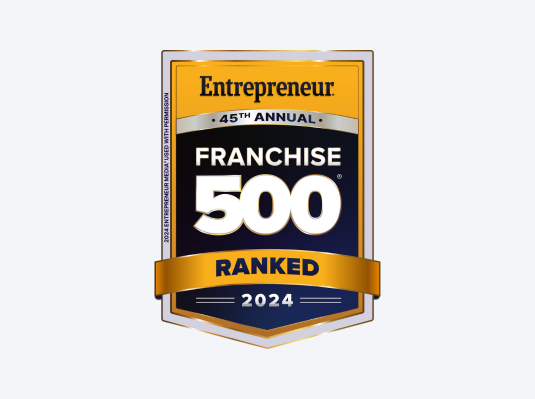
What to Consider Before Buying a Franchise
1. Self-Preparedness for Change
Owning a franchise is a monumental undertaking. First, it's important to reflect and confirm that you're the right person to succeed in this role. You don't necessarily have to have experience in the market you're franchising in—consider that your soft skills might be more important. Making the transition to franchise ownership requires a shift in lifestyle, mindset, and responsibilities. While given a toolkit in the form of a successful business model, you're still building a business from scratch and should be willing to put in the work day in and day out to be successful. You should know what goals and aspirations you have for yourself and your career. Are you the type of individual who is self-sufficient, tenacious, disciplined, and growth-minded? If you're nodding your head yes, then read on.
2. Lifestyle
Now that you’ve evaluated your marketable skills, it’s time to evaluate your lifestyle. Do you have the means to invest the time upfront to set yourself on a path for success? Make sure you’re asking the right questions and receiving honest feedback from your potential franchisor outlining what your first months and years will look like. Additionally, consider your day-to-day and long-term personal and family commitments and whether they align with your new business endeavor. Even if that means you need to postpone owning a franchise, you’ll still be setting yourself up for success in the future.
3. Financial Investment
Owning a franchise means paying an upfront fee to get started, as well as smaller, ongoing fees to continue to use tools and services. Understand the total investment required, including initial franchise fees, ongoing royalties, technology fees, marketing fees, real estate fees, and other operational costs. Scrutinize your financial health and consider if you have adequate capital or access to financing. Ask how the franchisor is willing to help you prepare a robust financial plan and research what traditional financing options could be available to you.
4. Market Research
If your personal considerations align, it’s time to conduct thorough market research. Are the ebbs and flows in the market going to affect the industries you’re interested in? Consider that industries like retail and restaurants may be more susceptible to market fluctuations while industries like financial services and maintenance may be more recession resistant. Just as important as market volatility is market saturation. If the industry is already overwhelmed with competition, the franchise may not have enough sustained customer demand.
5. Franchise Model, Reputation, and Support
The best part about choosing a franchise over other business models is access to a tested model that works. Examine each franchisor’s offerings thoroughly. Does the franchisor provide comprehensive training, ongoing support, and marketing assistance? Many franchisors even take tasks off your plate like back-office support and customer service. Has the franchisor taken care to put the customer or client at the center of what they do to foster trust in the brand? If you find the franchisor’s reputation and model align with your personal goals (see 1-3), you’ll be more likely to find success as a franchisee. Any franchisor you speak to should encourage you to engage with existing franchisees to understand their experiences within the franchisor's model. Learn from these sources what day-to-day and long-term success look like.
6. Limitations, Legal Documents, and Contractual Obligations
Make sure you understand the territory rights granted by the franchisor. Some franchisors offer exclusive territories, while others do not. Most franchisors will disqualify you early in the process if your region, territory, or state is closed for business. However, if you do find an opportunity in a territory that is available, understand how reputable the organization is in the area. While low market saturation is a positive, brand recognition can be just as important.
Franchise agreements can be complex. Review the Franchise Disclosure Document (FDD) carefully with an attorney who specializes in franchise law. Understanding your legal and contractual obligations will help protect your interests and ensure you have clarity on the relationship with the franchisor.
By methodically addressing these six considerations, prospective franchisees can better prepare themselves for the journey ahead. Remember, buying a franchise is not just a business transaction; it's a commitment that should be well-aligned to work for you. Book an appointment today to learn more about franchising with Goosehead.
Speak with Our Team



